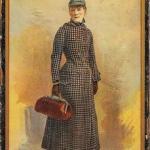Editors' Note: This article is part of a Public Square conversation on Billy Graham's life and legacy. Read other perspectives here.
Indisputably, the Rev. Billy Graham was "America's Pastor." His evangelistic crusades, drawing hundreds of thousands in cities across the United States, are legendary. His passionate preaching converted millions through the emerging medium of television. His charitable work was genuine and generous. Yet, there was one glaring omission in the ministry of the Rev. Mr. Graham: he had no interest in social transformation.
He admits to being a son of the South and subscribing unquestioningly to the prejudices and presumptions of life and race in pre-civil rights America. From his use of the word "nigger" to his oblivious concern for the plight of Black people in his own community, to his segregated crusades to preach "the gospel," Billy Graham was White America as the nation entered the most tumultuous historical moment since the civil war. As the high priest of American civil religion he, more than any other figure, had the moral authority to usher the nation from its racist past to a new multicultural future. But rather than lead, he made only the most modest accommodations possible to the social change happening all around him.
From the very beginning of the civil rights movement Graham cautioned caution, patience, non-intervention, and voluntary change rather than the legislative, direct action, and civil disobedience that actually brought about change. He made many disparaging remarks about the marches and sit-ins and warned against moving too fast.
The critical moment came in 1954 with the Supreme Court's decision in Brown v. Board of Education. This decision laid out the principle that separate was inherently unequal. This was the catalyst for Billy Graham's decision to stop preaching to segregated audiences at his crusades. It is telling for his theology that his conversion to Christ at age sixteen could not convince him of the truth of racial equality, whereas the Supreme Court evidently did.
His crusades in the south had been segregated in keeping with the laws and culture of that region. Rope lines separated black and white worshipers in stadiums and other venues were customarily segregated. But laws and rope lines weren't the problem in the north. Blacks just didn't feel welcome at his crusades. In 1957 he conducted a fourteen-week crusade in New York City. He was dismayed that the audiences were almost all white. He reached out to several Black ministers to help him integrate the New York crusade. One of those ministers was Howard O. Jones. The other minister was Martin Luther King, Jr. Graham invited King to pray at one of the meetings and held a dinner in his honor. But he chose Howard O. Jones to join his crusade and travel with him for the next decades of his ministry. What a missed opportunity. He had a choice between Howard Jones and Martin Luther King and chose Howard Jones!
Graham's account of the conversation with King is somewhat disputed by King's account. According to Graham, Graham asked King if he should join King in the streets of the civil rights movement and King said, "You stay in the stadiums, Billy." He was suggesting that Graham's preaching to integrated audiences in the still segregated south would have a distinct impact on the effort to dismantle racism in America. But that was just the protasis. King's apodosis was that a King/Graham crusade across America would be the most powerful strategy for changing the nation and advancing the civil rights movement. Wow! Can we imagine the impact of a national crusade across the United States led by the two most powerful preachers of the 20th century, one white, one Black?
This was the greatest missed opportunity not only of the civil rights movement but of Billy Graham's ministry. The course of the entire civil rights movement and thereby the course of American history would have been changed. Can we imagine what it would have meant for the civil rights movement to have financial support from the Billy Graham Evangelistic Association? Can we imagine King and Graham together? Can we imagine King and Graham together in front of integrated audiences in Mississippi; together in front of Congress; together in the Oval Office talking to Kennedy; together on the National Mall in 1963, sharing a dream for a new nation? King and Graham together on the balcony of the Lorraine Motel in Memphis in 1968; how would that have changed America? How would that have changed the world?
11/12/2013 5:00:00 AM




